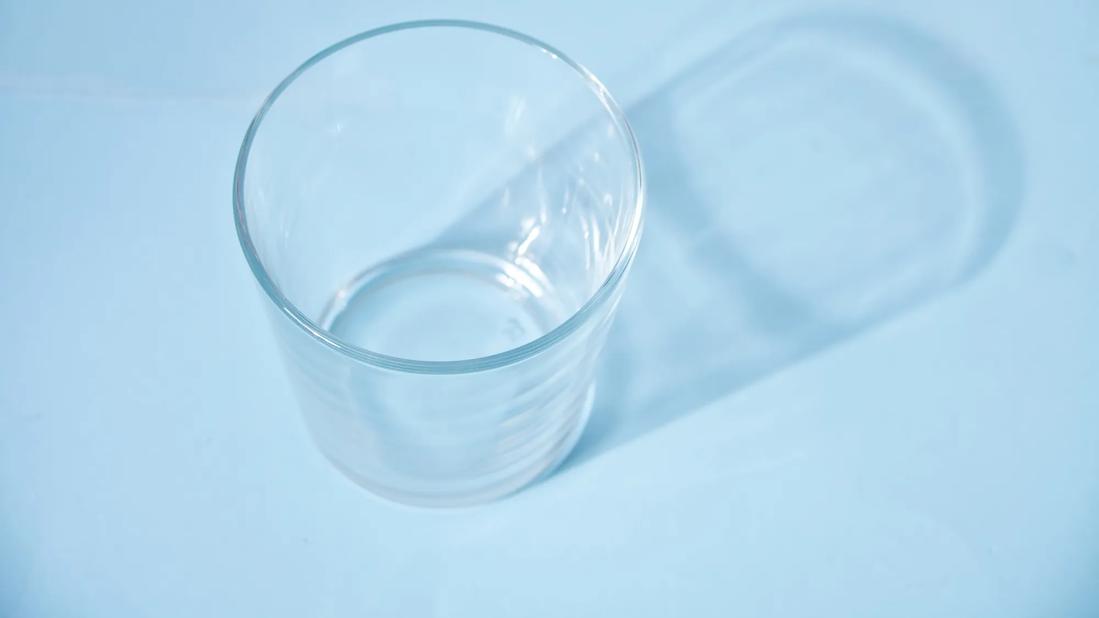Pressing a glass on a rash provides some clues, but it’s not foolproof

Image content: This image is available to view online.
View image online (https://assets.clevelandclinic.org/transform/7c959535-c0d6-498c-99c1-5966f5de4613/empty-glass-1216802666)
Empty glass on blue table
The “glass test” claims to be an easy, at-home way for parents and caregivers to spot meningitis, a rare but potentially life-threatening condition. And as young children have a higher risk of this disease, it seems like a useful tool for parents to have in their arsenal.
Advertisement
Cleveland Clinic is a non-profit academic medical center. Advertising on our site helps support our mission. We do not endorse non-Cleveland Clinic products or services. Policy
What is the glass test? And is it reliable? Pediatrician Sabrina Ma, MD, has the answers every parent should hear.
The glass test is supposed to be a way to determine whether a rash could be from meningitis. To perform it, you press the side of a clear glass against the rash and watch how your skin responds. A meningitis rash is non-blanching, which means it won’t fade or disappear even when you press the glass on it.
The glass test can alert you to a potential emergency, but it can’t diagnose or rule out meningitis on its own.
“The glass test can also be misleading,” clarifies Dr. Ma. “In the earlier stages of the illness, meningitis can cause a blanching rash, which temporarily fades when you press it. This means it could give you false reassurance.”
“A meningitis rash isn’t a typical rash that results from irritated or inflamed skin,” explains Dr. Ma. “It won’t itch or feel rough or bumpy. The ‘rash’ you see is blood spots under the skin caused by leaking blood vessels.”
These spots, known as petechiae, usually look like small dots or blotches that are red, purplish or brown. Typically, the petechiae affect the arms, legs, hands and feet first.
In a matter of hours, the spots may grow into larger, bruise-like marks, known as purpura. Although these marks may look obvious on lighter skin tones, they can be hard to see on darker skin.
Advertisement
And the biggest problem with the glass test?
“If you wait until you see a non-blanching rash, it could be too late,” says Dr. Ma. “At this stage, the disease is more likely to cause severe illness and may even be fatal. Don’t wait for a non-blanching rash to appear before you seek medical attention.”
As the glass test isn’t a for-sure method for spotting meningitis, what else can you do?
“Learn the signs of the disease so you can watch for them in your child,” encourages Dr. Ma.
Meningitis symptoms in babies and children include:
Children can get meningitis from germs that enter the body and infect the meninges (coverings on the brain and spinal cord). These germs include bacteria, fungi or viruses.
“Viral meningitis is the most common type in children,” shares Dr. Ma. “Fortunately, this type is usually less serious than bacterial meningitis, though any type requires immediate medical care.”
Any child can get meningitis, but children have a higher risk if they:
If your child has symptoms of meningitis or appears very ill, don’t make decisions based on the glass test. Head to the nearest emergency room.
And though illnesses like meningitis are a parent’s worst nightmare, try not to panic. “Meningitis is treatable when caught early,” reassures Dr. Ma. “With timely medical care, most children make a full recovery.”
Even though you can’t count on the glass test, you’re not powerless against meningitis. Knowing when to call your provider or seek emergency care is your first weapon against this disease.
Your other superpower? Vaccines.
The Haemophilus influenza type B (Hib) vaccine, given during infancy, protects against a bacterial infection that can cause meningitis. And many vaccines that prevent viruses also help protect your child.
“The flu, chickenpox and measles vaccines can greatly reduce your child’s risk of getting viral meningitis,” states Dr. Ma.
Many families have questions about vaccines. Healthcare providers welcome those conversations and want you to feel confident in the decision you make.
Finally, your parent’s intuition will help you determine whether your child needs medical care.
“Usually, meningitis will make your child feel very sick, very quickly,” Dr. Ma adds. “If something seems off, listen to your gut and contact your provider or get emergency care. It’s always better to play it safe and get it checked out.”
Advertisement
Advertisement

Sign up for our Health Essentials emails for expert guidance on nutrition, fitness, sleep, skin care and more.
Learn more about our editorial process.
Advertisement
Infants are at high risk of severe RSV, but getting the vaccine during pregnancy helps protect them from it
Eczema triggers are different for everyone, but there are some common ways to manage flare-ups, like using a humidifier and fragrance-free creams
Chilblain-like skin lesions and rashes are mild (and rare) complications of many viral infections, not just COVID-19
Yes, but symptoms can be easy to miss
‘Walking pneumonia’ is milder and doesn’t always require medication — but it’s also highly contagious
It could leave a mark when you’re walking long distances in hot weather
Most rashes aren’t dangerous — but it’s worth talking to your pregnancy provider about them
From washing your hands and disinfecting surfaces to boosting your immune health, there are many ways to reduce your flu risk
Prioritize your health by managing stress, strengthening your social connections and getting quality sleep
Bolsters, blankets, pillows and blocks can offer extra support, stability and comfort
Allergies, postnasal drip, asthma or reflux could be to blame for a cough that won’t quit